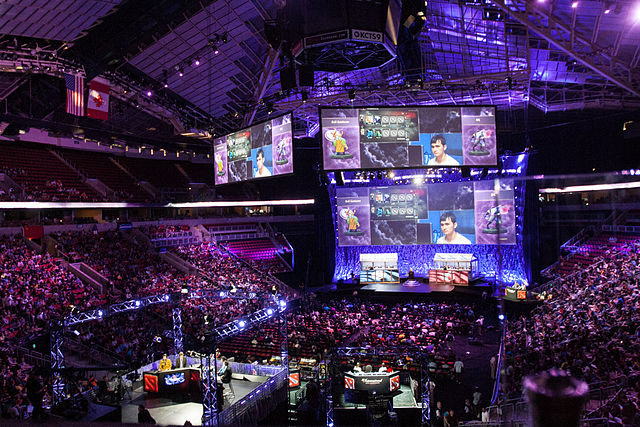Is there demand in the UK for eSports and DFS?
 iGaming
iGaming Continuing our iGaming focus, today we’re investigating whether there is a demand in the UK for eSports and Daily Fantasy Sports (DFS).
Initially, we’ll take a look at eSports, and just how popular it is in the UK from a search perspective. So with that in mind, here’s what the search trends look like for the term “eSports”:
Here we can see that there has been some interest in eSports since 2007, however this is minimal and it isn’t until 2013 where the trends begin to pick up. Since then, there has been a slight upward trend each year, with a surge in the trends in September or October each year. Upon doing some research into this, this is down to the League of Legends World Championship which takes place at this time of year. So where does betting come into the world of eSports?
A number of e-Sports ‘teams’ have formed and compete against each other in league or knockout-based competitions, in a variety of games including League of Legends, Dota2 and Call of Duty. A number of operators now take bets on the outcome of these matches, just as they would on the outcome of a football match. At present, with most operators punters can only place bets on the outright winner of a match, however it’s likely that as the popularity of eSports increases, operators will start to offer other markets such as “highest kill streak”, “player with most kills” or ‘over/under’ type markets. So what do the current search trends look like for “eSports betting” at the moment?
As we can see, there is only data from 2015 available for the term “eSports betting”, although it is interesting to see that there is an upward trend for the most part of the year, with the peak in search interest happening in October, at the same time as the term ‘eSports’ peaks due to the LoL World Championships. This suggests that there is a demand for betting on eSports, at least at major events.
Next we turn our attentions to Daily Fantasy Sports (DFS), which has caused quite a commotion across the pond in the US. However, with DraftKings having launched in the UK little over a month ago, one of the biggest DFS operators obviously feels there’s a big enough market in the UK.
DraftKings has become entangled in a legal battle over in the US, over whether it is actually a form of gambling, and how the market should be regulated. However, it has paid out more than $1bn to its 6 million registered players so far, and a move into the UK territory is only likely to increase both these figures.
For those unfamiliar with DFS, players take part in singly day competitions, in which they pick teams from players from a particular sport, for example football. These ‘fantasy teams’ then compete with other users’ teams based on stats from real life matches. NFL is the sport which has been most popular up until now, however with DraftKings also offering its service across NHL, NBA, MLS, Golf, and now Premier League football, is it a case of “only a matter of time” before the latter takes over as the most popular option?
Well, with millions of football fans taking part in season-long Fantasy Football games such as the one operated by the Premier League or by newspapers such as The Sun or The Telegraph, there is already an audience for this kind of game. However, whether this audience is willing to place wagers on teams they build is another matter, and again, only time will tell.
So, is there a demand in the UK for eSports and DFS? Well, it would be difficult to ignore the evidence we have which suggests that there is a market for it, with most operators now taking bets on eSports, and the likes of DraftKings entering the UK market for the very first time. It’s likely that other DFS operators such as Edinburgh-based FanDuel will be watching this activity with considerable interest, to see whether they can also get in on the action should the opportunity arise.

